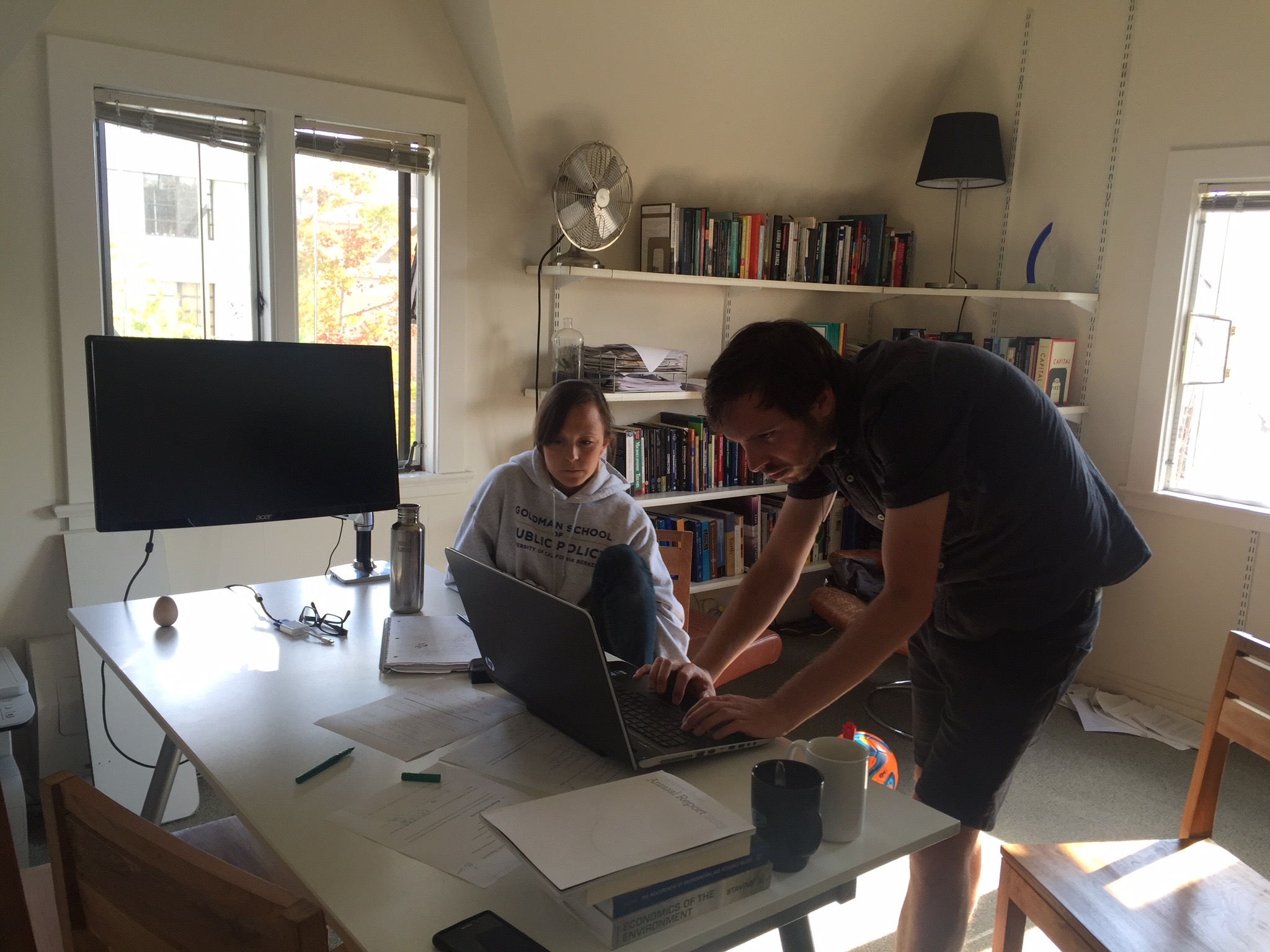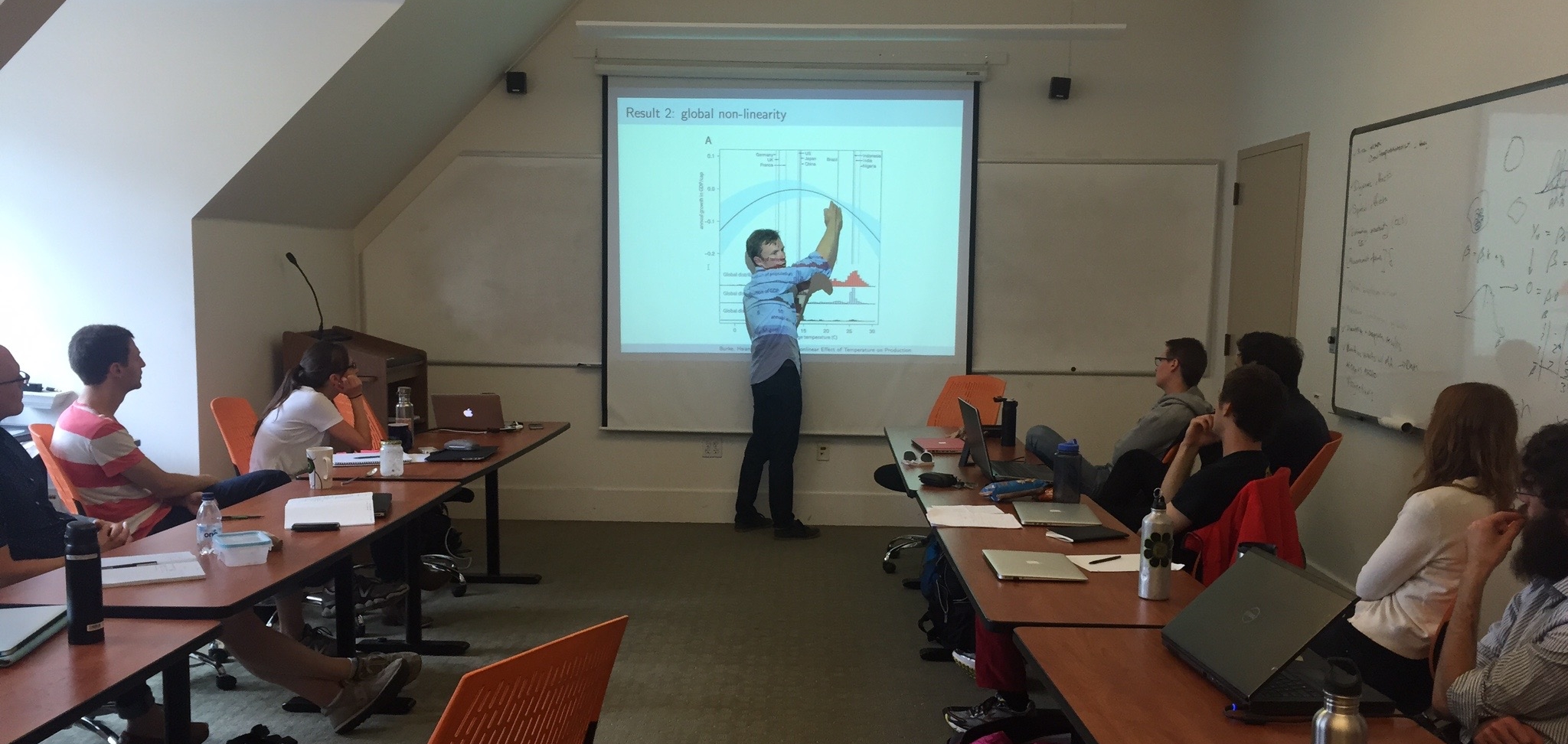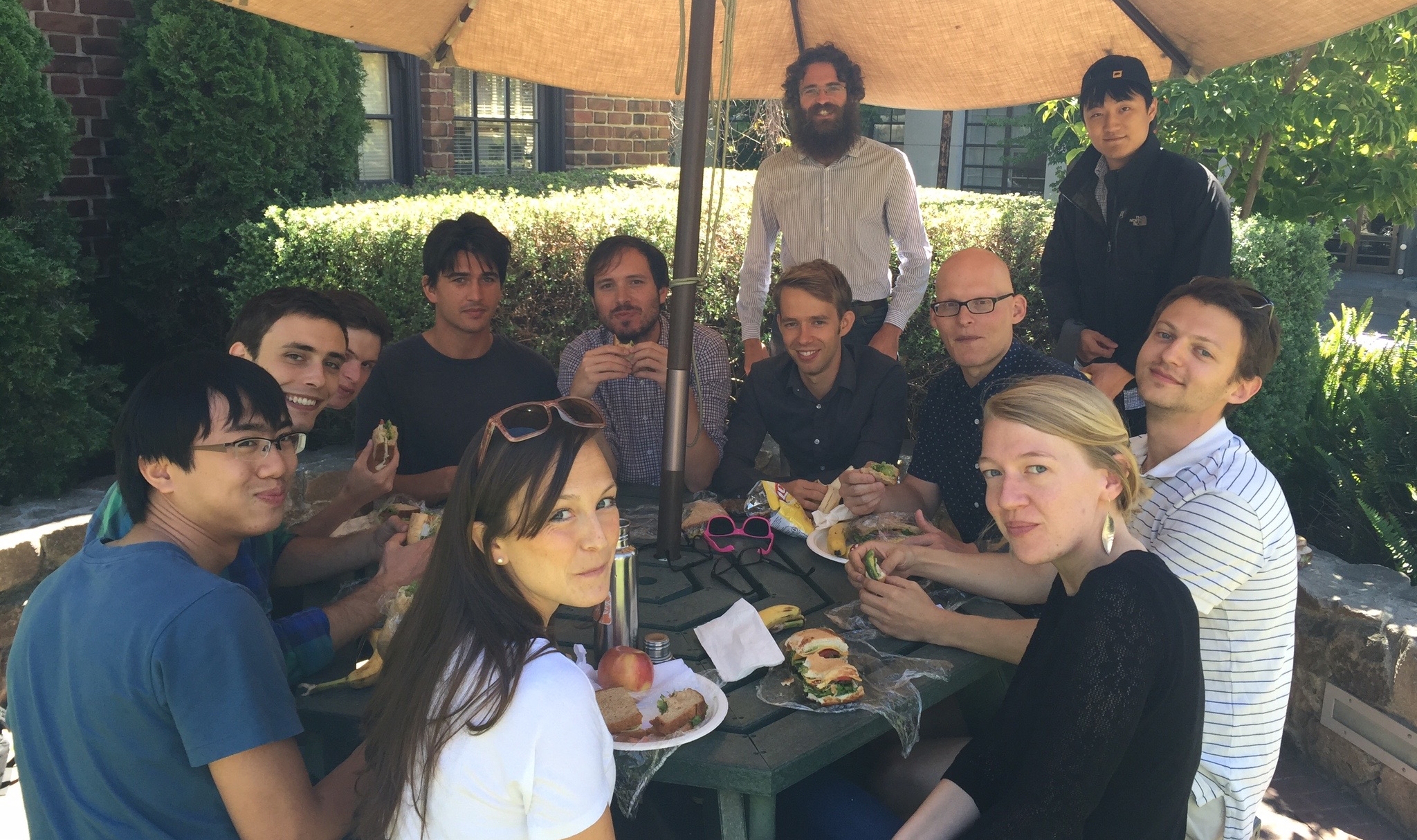Summer Workshop in Climate Change Economics: Empirics of Climate Impacts
The socioeconomic impacts of anthropogenic climate change are complex and often poorly understood, but nonetheless form the core of optimal global climate policy. In this intensive summer course paired with faculty-mentored research, graduate students from multiple disciplines and universities will learn a variety of methods critical to rigorous identification of climate impacts from lead researchers in this field, and will implement this knowledge with an individualized research project employing previously un-analyzed paired socioeconomic and climate datasets.
Instructor Solomon Hsiang and a range of guest lecturers will provide instruction on the econometrics of climate change impacts, and will guide students through original research projects that aim to fill important gaps in the climate literature. While climate change impacts are increasingly studied, there are many damages that remain unmeasured; each student's project will provide a policy-relevant estimate of an unknown impact. These impacts will be a key component of the Global Climate Prospectus (GCP), an interdisciplinary effort to estimate the global impact of climate change over the coming century by linking climate models with econometric research of human responses to climate variability, thus offering policymakers a quantitative assessment crucial to the design of climate change policy. Students will provide climate impact estimates for their individual project by the end of the summer, will co-author articles for publication with continued faculty mentorship through the fall semester, and will be encouraged to use the data and skills acquired for future original research. This course will facilitate collaboration across graduate students from economics, agricultural and resource economics, energy and resources, and sustainable development fields at UC Berkeley, University of Chicago, and Columbia University, forging academic ties that we hope will continue throughout these students' careers.
COURSE DETAILS
Primary instructor: Solomon Hsiang (UC Berkley)
Guest lecturers: Michael Greenstone (University of Chicago), Max Auffhammer (UC Berkeley), Ted Miguel (UC Berkeley), David Anthoff (UC Berkeley), Marshall Burke (Stanford), Kyle Meng (UC Santa Barbara), Reed Walker (UC Berkeley), Trevor Houser (Rhodium Group), Kate Larsen (Rhodium Group), Patrick Baylis (UC Berkeley), Amir Jina (University of Chicago), Ashwin Rode (University of Chicago), James Rising (Columbia University & UC Berkeley)
Three week intensive workshop (June 15 – July 2): 2-3 hours of discussion-based lecture 3-4 days per week, assigned reading, student-led literature review seminars one day per week
Six week mentored research period (July 6 – August 14): weekly group meetings with full team, weekly meetings with individual faculty mentor, independent research.
Course topics covered will include: cross-sectional and panel climate regressions, the frequency-identification tradeoff, climate response functions, climate data, flexible nonlinear panel models, measurement error, meta-analysis, projection and simulation uncertainty, distributed lag models, degree day models, cumulative effects, adjustment of standard errors for spatial correlation, modeling adaptation, heterogeneous effects, spatial lags, long differences, aggregation of nonlinearities, data management, best practices for reproducibility
Classroom space and student work space provided by the Goldman School of Public Policy, the Social Science Matrix, and the Berkeley Institute for Data Science.
Graduate Student Instructor: Tamma Carleton, PhD Student, Agricultural & Resource Economics, UC Berkeley
Faculty mentors: Solomon Hsiang, Michael Greenstone, Max Auffhammer, Marshall Burke, Reed Walker







